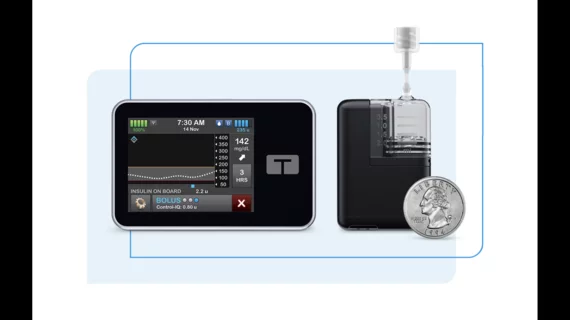Patient risks persist for insulin pump caught in Class I recall
Tandem Diabetes Care is still working to resolve ongoing issues with its t:slim X2 insulin pump that resulted in a Class I recall earlier this year. The original recall, shared with customers in March 2024 and then publicized by the U.S. Food and Drug Administration (FDA) two months later, was due to the insulin pump’s Apple iOS mobile app repeatedly crashing and then restarting again and again.
“This cycle intermittently repeats, which leads to excessive Bluetooth communication that may result in pump battery drain and may lead to the pump shutting down sooner than typically expected,” the FDA said at the time. “Pump shutdown will cause insulin delivery to suspend, which could lead to an under-delivery of insulin and may result in hyperglycemia or even diabetic ketoacidosis, which can be a life-threatening condition due to high blood sugars and lack of insulin.”
At the time, Tandem told customers they needed to download version 2.7.1 or later of the mobile app and the battery issue would be resolved. However, according to a new update dated Aug. 12, problems persisted even with version 2.7.1.
“Notices were emailed to impacted customers on Aug. 9, 2024, with updated information and recommendations for helping avoid pump battery depletion,” the company said. “Tandem plans to release a new version of the app to address the remaining issues and will notify all users by email and app push notifications following its release.”
Tandem also shared recommendations for current users of its t:slim X2 insulin pump. It should be charged 10 to 15 minutes every day, for example, “to avoid frequent full battery discharges.” In addition, the company said back-up supplies should be carried at all times and charging should occur as soon as users receive a battery warning.
Click here to read the full Tandem update.

